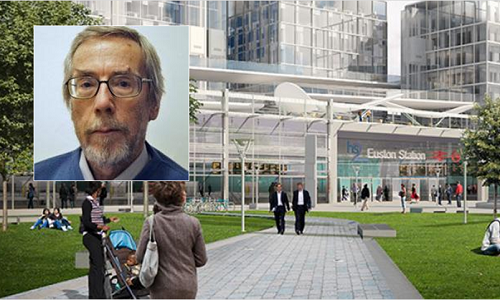
Smoke and mirrors: the regional impact of HS2
Honorary Professor Mike Geddes attacks the ‘desperation’ of a government that relies on ‘trashed evidence’ to prop up the collapsing case for HS2.
Debate about the regional impact of HS2 has been revived by the release by government of KPMG’s report, HS2: Regional Economic Impacts. KPMG claim that HS2 could generate £15bn in productivity gains for the GB economy in 2037 when the full network opens (to Leeds and Manchester as well as London to Birmingham), with a further positive effect in following years. Moreover city regions like the West Midlands will experience an improvement in their competitive position relative to London and the rest of the UK.
As might be expected, this has been seized on gleefully by key figures in Birmingham. Jerry Blackett of the Birmingham Chamber of Commerce Group is quoted as saying that ‘the KPMG report is a ringing endorsement of everything those of us who support HS2 have been saying’. Mr Blackett is, as usual, engaged in ‘boosterism’ – bigging up positive news in order to create a bubble of optimism around the city economy. But of course we all know what happens to the economy when bubbles burst. So should we join with the Birmingham boosters in welcoming the KPMG report?
Well in the first place, we should note that this is not the first time consultancy reports have been produced with eye-catching headlines about the regional economic benefits of HS2. Not so long ago, Volterra and Arup undertook a study on the basis of which the Core Cities Group (which includes Birmingham) claimed that HS2 could underpin £44bn of GVA (gross value added) and 1m additional jobs in our major urban areas. The only problem was that the Volterra/Core Cities figures turned out to be no more than a hypothetical and highly unlikely ‘best case’ economic scenario for the period up to 2020 – well before HS2 could be operating and so in no way a result of it!
KPMG also have previous form on this. Earlier work for Greengauge 21, the pro-HS2 lobby group, suggested that high high speed rail would help to bridge the north-south divide, creating more jobs and higher wages in the North and Midlands, especially in the core cities, than in London and the south, which might actually see relative losses.
It is notable however that the government and HS2 Ltd have not directly associated themselves with such claims until now, leaving that to regional boosters. There are excellent reasons for this. Studies such as that by KPMG for Greengauge were criticised by impeccably independent experts. The Institute for Transport Studies at Leeds University thought they exaggerated the role of transport investments in driving employment and questioned whether London would lose out. Indeed the great majority of experts take the view that the most dynamic centre (in this case undoubtedly London) is likely to be the principal beneficiary of new transport investments like HS2.
A study by Imperial College commissioned by HS2 Ltd said that the order of magnitude of national economic ‘agglomeration’ benefits from high speed rail is likely to be very small. A cross-national review of the evidence by Professor John Tomaney of Newcastle University found that “the impacts of high speed rail investments on local and regional development are ambiguous at best and negative at worst”, while Professor Roger Vickerman, commenting on the much-hyped parallel case to HS2 of the supposed economic benefits of HS1 in Kent, says ‘they are not visible to the naked eye’.
So does the new KPMG report turn this around? Absolutely not. Experts are already trashing their methodology and conclusions. One of the biggest names in the field, Professor Henry Overman of the LSE, in a commentary titled ‘HS2 Regional Economic Impact: Garbage in……?’, says the report does things which are ‘technically wrong’ but are crucial for their findings. Key parts of their method ‘does not have a firm statistical foundation’, ‘is essentially unfounded’ and ‘produces estimates of effects that are meaningless’. This may well explain why KPMG are so curiously coy about their own work, saying in the preface that ‘all users are advised to undertake their own analysis ….before making any decision ….based upon information in this report’. Hardly a glowing endorsement of their own product!
So what can we conclude? First, that the government is getting desperate in making the case for HS2 if it needs to rely on ‘evidence’ like this. Secondly, that HS2 may well produce a bit of new regeneration around the (very few) stations, but will do little or nothing for anywhere outside these locations and will be absurdly expensive in employment creation terms.
Brummies have always had a reputation for straight talking and common sense. Hopefully they will see through the smoke and mirrors which the government and some local voices are forced to rely on to prop up the collapsing case for HS2.
Published as part of:
Similar Articles
Key Conservatives on-board with HS2 1
In his keynote speech to the Conservative Conference in Manchester, David Cameron has backed HS2,
Sorry rail buffs: Great British Public will always believe HS2 is a colossal waste of money
There was no doubting the gold-plated credentials of speakers at the Greengauge 21 HS2 conference
Birmingham New Street commuters face chaos if HS2 isn’t built, warns Network Rail
Network Rail has renewed its campaign for HS2 by warning that failure to build a









